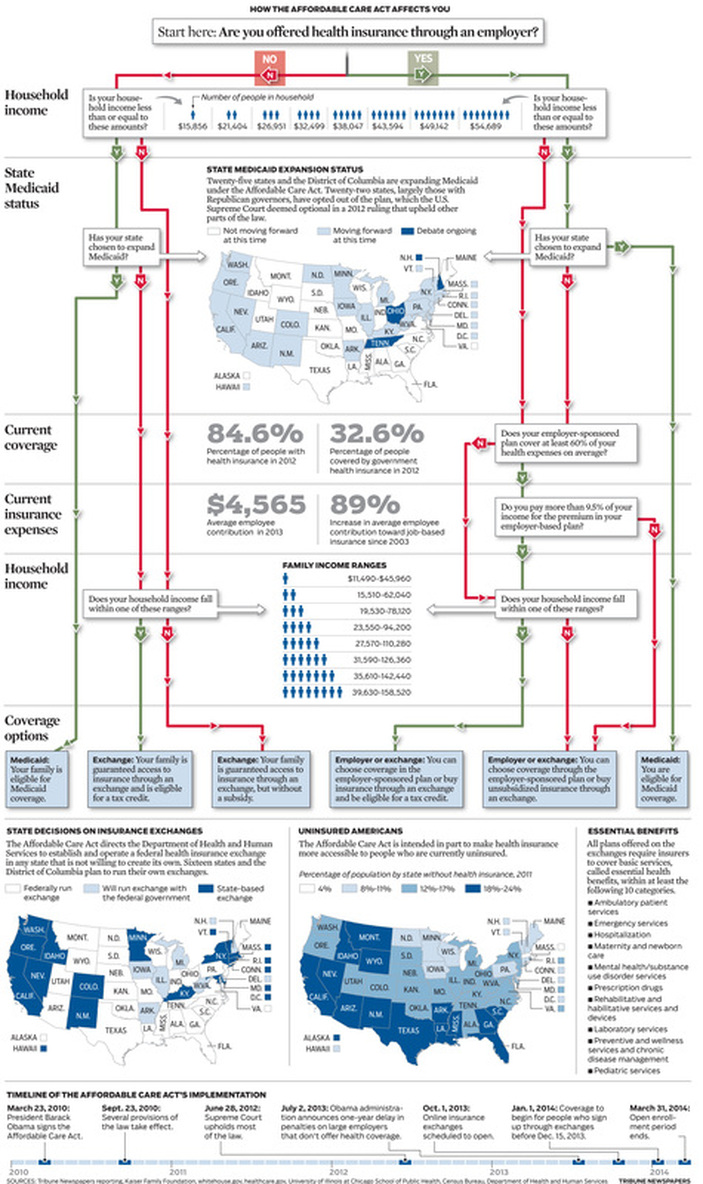Key part of Affordable Care Act will make health coverage more widely available.
A key part of the Affordable Care Act takes effect Tuesday, when millions of Americans are expected to begin signing up for new health insurance plans, many of which will be subsidized by the federal government. The policies will be sold by various companies through government-run websites called exchanges or marketplaces, where people can compare plans before choosing their best option. The exchanges were created to offer affordable coverage to people who don’t have insurance or who pay too much for their coverage, with most low-income families qualifying for Medicaid or federal subsidies that will help them pay for their policies.
Most people who have coverage through their jobs will likely keep their current policies, although some may be eligible for policies offered through the exchanges. Insurers selling plans through the exchanges cannot deny coverage or charge more to people with pre-existing medical conditions, and they must cover treatments for those conditions. Many preventive services also will be covered at no cost. About 7 million people are expected to use the exchanges to shop for new policies, with coverage beginning in 2014, according to the Congressional Budget Office. With a few exceptions, people who do not have insurance will face a tax penalty, starting next year at $95 or 1 percent of household income, whichever is greater. Here’s a look at how Americans will access health coverage once the exchanges open, plus information about how implementation of the health care law varies across the states.
| |
Have questions? I can help you navigate through the confusing marketplace. Contact me!
Federally Facilitated Marketplace Enroller #JKINZIE49316@616
National Producer Number #8049289

 RSS Feed
RSS Feed








